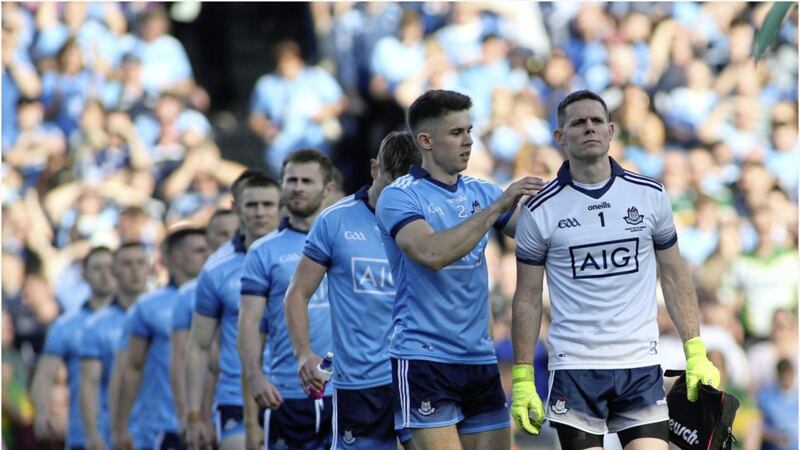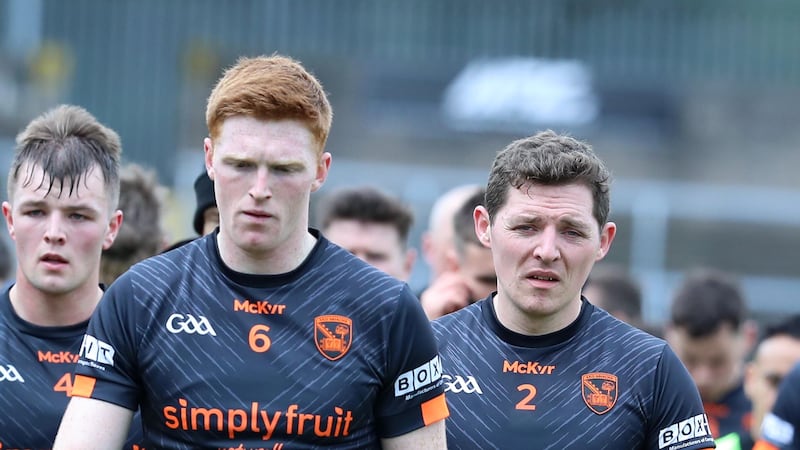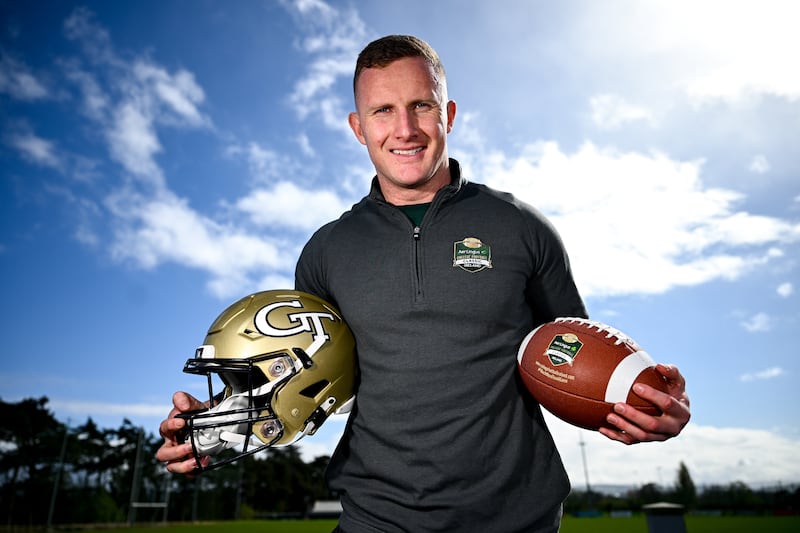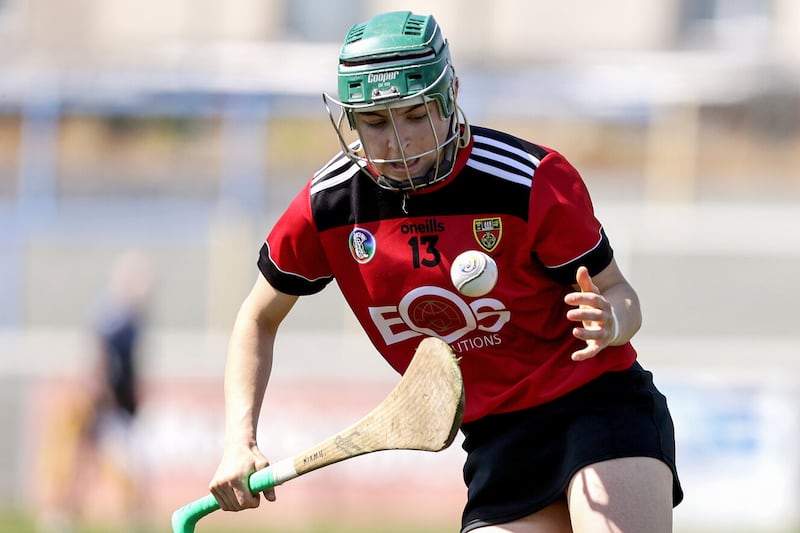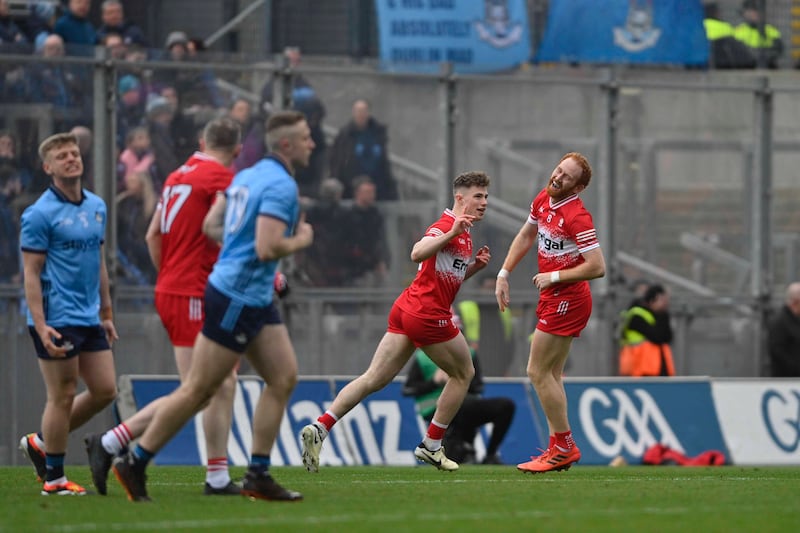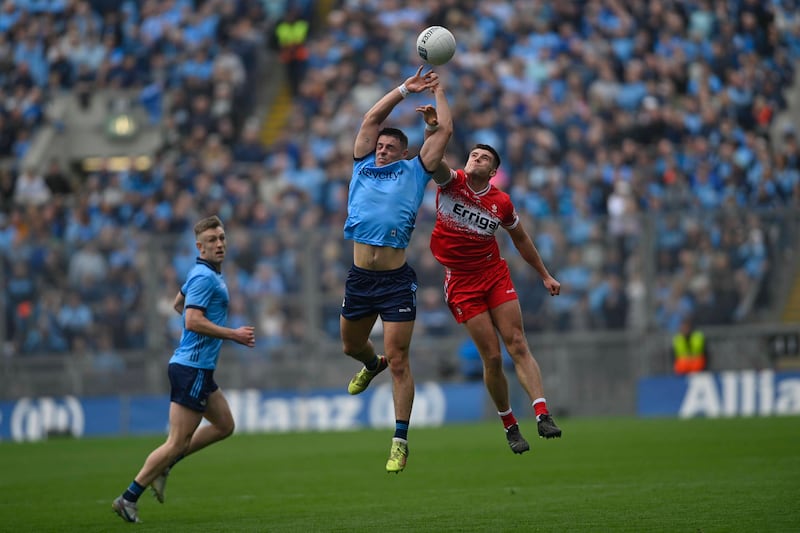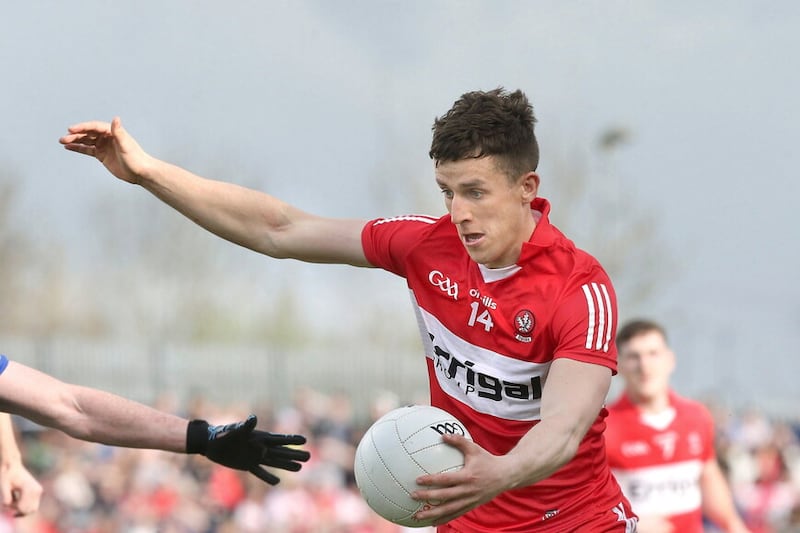WHENEVER anyone says something along the lines of ‘End of debate’ or ‘Discussion over’ it makes me think several things: a) they’re stupid; b) they’re arrogant; and/or c) they mustn’t come from a large family.
So it is with this idea that Dublin are ‘the greatest team ever in GAA history’.
I’m not saying they aren’t; but I’m not saying they are either.
They’ve won the most consecutive titles, that’s beyond dispute.
However, I’d contend that the Kerry ‘Golden Years’ side was a greater team - with Dublin having the greater squad.
Gaels of a certain age could probably rhyme off that Kerry 15:
Charlie Nelligan; Jimmy Deenihan, John O’Keeffe, Mick Spillane; Paidi O Se, Tim Kennelly, Paudie Lynch; Jack O’Shea, Sean Walsh; Ger Power, Denis ‘Ogie’ Moran, Pat Spillane; Mikey Sheehy, Eoin Liston, John Egan.
There might be some debate that Tommy Doyle should be in there (not least because he started four finals), perhaps in place of Mick Spillane - but the other 14 have definitely attained memorable, legendary status.
No fewer than 10 started all five finals, from 1978 until ‘the one they should have won’, 1982, namely Nelligan, O’Keeffe, Lynch, Paidi, Kennelly, ‘Jacko’, Walsh, Moran, Sheehy, and Egan; Pat Spillane played in all five, coming off the bench in 1981 and ’82, with only injury keeping him out of the starting line-ups.
Four more started four finals – Deenihan (the four wins), Power, Liston, and Doyle.
Now consider the 15 who have contributed the most to Dublin’s five-in-a-row:
Stephen Cluxton; Jonny Cooper, Philly McMahon, Michael Fitzsimons; Jack McCaffrey, Cian O’Sullivan, John Small; James McCarthy, Brian Fenton; Paul Flynn, Diarmuid Connolly, Ciaran Kilkenny; Paul Mannion, Con O’Callaghan, Dean Rock.
Of those, only six started all five finals: Cluxton, Cooper, McCarthy, Fenton, Kilkenny, and Rock. Arguably only his decision to travel in 2016 stopped McCaffrey bringing that tally to seven, while injury affected Mannion in 2015 and he did start the 2016 replay.
Philly McMahon and Cian O’Sullivan were also regular starters up until this year, while John Small played the final quarter of the 2015 decider and started every final (and replay) since that.
Hold on a moment, I hear you cry? Where’s Bernard Brogan?
Well, for a man who’s been portrayed as the public face of Dublin football – especially on billboards – ‘Berno’ hasn’t started an All-Ireland Final since the drawn game of 2016. He came on in the 65th minute of that year’s replay, and in the same minute a year later, but hasn’t played in a decider since then.
Flynn deserves to be in that Dublin 15 of the past five seasons, having started the 2015 and 2016 finals (and replay) and played most of the 2017 game after an early injury to McCaffrey.
Indeed, there’s more of a case for Paddy Andrews too, who lined out for the 2015 and 2017 finals and the 2016 replay, and played most of the drawn game three years ago.
Those names are indicative of how much the Dublin attack has changed in just the four years from 2015 to now.
Niall Scully and Brian Howard are now the first choice wing-forwards, having started the last three finals (including this year’s replay).
Con O’Callaghan came into the team in 2017 and those three are part of a major changing of the attack.
Similarly to Bernard Brogan, the darling of the Hill, Diarmuid Connolly, hasn’t lined out in a decider since 2016 either, but at least that was in the replay, in which he played a key role. ‘Diarmo’ has also started the second halves in 2017 and this year’s replay.
In defence, Davy Byrne and Eoin Murchan are probably in now, at the expense of Philly and O’Sullivan.
When you look at the other players used the contrast between the Kerry team and the Dublin squad is even starker.
Apart from the 16 players named above, Kerry used only five others in those five finals from ’78 to ’82 – and only one different starter, Tom Spillane (in that last, losing final). Pat O’Mahoney came on in 1978, Vincent O’Connor in ’79, Ger O’Driscoll the next year, and Ger O’Keeffe in 1981. Those were the only subs used, apart from Pat Spillane.
Other Dublin starters in All-Ireland Finals have been Denis Bastick, Rory O’Carroll, Michael Darragh Macauley, Kevin McManamon, and Eoghan O’Gara, while there have been substitute appearances for Alan Brogan, Darren Daly, Cormac Costello, and Eric Lowndes.
Sure, it’s a squad game nowadays, and perhaps if Kerry had had to play more matches they might have used a greater number of different players in finals - but Dublin’s strength in depth has obviously contributed to their recent successes.
Dublin are clearly well on top when it comes to an unbeaten streak, theirs now standing at 37 games, almost double Kerry’s tally of 19.
Yet is there really more serious competition for Dublin now than there was when Kerry had to get past Cork and then come up against the Dubs themselves?
Another aspect to consider is the winning margin in finals. Kerry won their first final by 17 points (against Dublin), the same margin that it took the Dubs five seasons (and seven finals, including replays) to reach. The Kingdom also won by 11, 3-, and 7-point margins, before losing out by the minimum margin in 1982 to a goal that still prompts debate.
Dublin’s victories have been by the following margins: 3, 1 (replay), 1, 6, and 6 (replay).
Of course, the Dubs’ ability to come through such close contests is an indicator of their greatness. Arguably.
Dublin can go on to greater things, but there won’t be too many of their players who will match the All-Ireland medal hauls of the Kerry golden generation. Remember that five of them – Paidi, ‘Ogie’, Pat Spillane, Power, and Sheehy – all won eight medals, stretching from 1975 to 1986.
Then again, Cluxton and McCarthy have seven starts in the seven triumphs this decade, while O’Sullivan, McMahon, and McManamon all have seven medals too; Fitzsimons, Macauley, and Connolly were there in 2011, McCaffrey, Mannion, Kilkenny, and Rock there in 2013…
Let’s re-visit this debate in a few years.
Besides, are people forgetting that Kilkenny won eight out of 10 hurling titles between 2006 and 2015?

